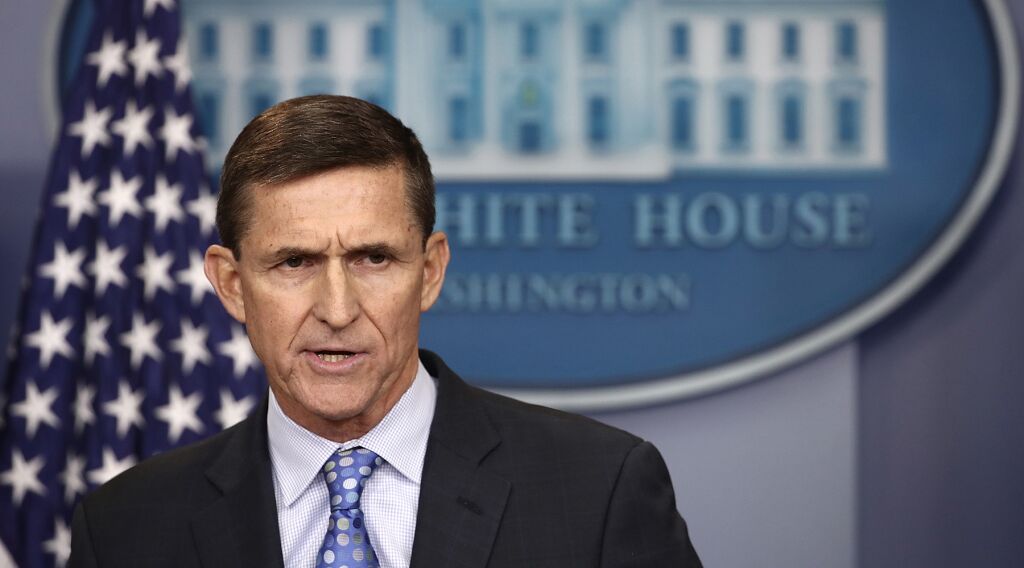
Donald Trump Puts Iran ‘On Notice’
JERUSALEM—On Sunday, Iran launched a Khorramshahr medium-range ballistic missile from a test site outside Semnan, east of Tehran. The next day, Iranian-backed Houthis rebels in Yemen thrust a boat laden with explosives into a Saudi frigate in the southern Red Sea. Some reports indicate the Houthis believed their target was a United States’ naval vessel.
Two days after the Houthi assault, and three days after Iran’s missile test, Donald Trump’s White House responded—by telling Iran it was “on notice.”
Here is the full statement read by the new national security adviser, Mike Flynn:
Recent Iranian actions, including a provocative ballistic missile launch and an attack against a Saudi naval vessel conducted by Iran-supported Houthi militants, underscore what should have been clear to the international community all along about Iran’s destabilizing behavior across the Middle East.
The recent ballistic missile launch is also in defiance of UN Security Council Resolution 2231, which calls upon Iran “not to undertake any activity related to ballistic missiles designed to be capable of delivering nuclear weapons, including launches using such ballistic missile technology.” These are just the latest of a series of incidents in the past six months in which Houthi forces that Iran has trained and armed have struck Emirati and Saudi vessels and threatened U.S. and allied vessels transiting the Red Sea. In these and other similar activities, Iran continues to threaten U.S. friends and allies in the region. The Obama administration failed to respond adequately to Tehran’s malign actions—including weapons transfers, support for terrorism, and other violations of international norms. The Trump administration condemns such actions by Iran that undermine security, prosperity and stability throughout and beyond the Middle East and place American lives at risk. President Trump has severely criticized the various agreements reached between Iran and the Obama administration, as well as the United Nations, as being weak and ineffective. Instead of being thankful to the United States for these agreements, Iran is now feeling emboldened. As of today, we are officially putting Iran on notice.
The strong yet ambiguous threat from the Trump administration is somewhat of a contrast to previous responses from President Barack Obama following similar acts of aggression. Mr. Obama usually downplayed provocative actions by Iran in order to accomplish and protect his goal of reconciling with Tehran and inviting it into the international community. However, Mr. Obama’s repeated compromises simply encouraged Iranian belligerence.
Right now no one seems to know what being “on notice” means practically. The meaning will likely only become clear when Iran either tests another ballistic weapon, tests the limits of the nuclear deal, or commits another hostile act through one of its proxies. (Further provocations from Iran, of course, are as certain as tomorrow’s sunrise.) It is significant that Iran conducted this ballistic missile test not just in full view of the world, but within the first days of the Trump presidency. Tehran was publicly probing America’s new leader. Here’s how Israel Hayom cartoonist Shlomo Cohen captured the thought:
https://twitter.com/IsraelHayomEng/status/826963388525903872
What ‘On Notice’ Could Mean?
Given Iran’s track record of hostility, it won’t be long before Mr. Trump is forced to reveal what he meant by putting Iran “on notice.”
One possible countermeasure would be renewing sanctions. Some have even suggested he could even tear up the nuclear deal itself. But this would be difficult, as Mr. Trump would need a measure of cooperation from the international community, which remains generally positive about the deal and generally hostile toward Donald Trump. Plus, it would take time for Iran to feel the effect. Ending the deal could play into Iranian hands as well, as Tehran has long indicated that it would be the United States, not Iran, that backs out of the deal first.
Mr. Trump could opt for a direct military intervention at Iran’s nuclear sites, or perhaps increase America’s naval presence in the Persian Gulf and Red Sea. This would be relatively cheap but probably wouldn’t sting Iran as much as he hopes.
A likelier countermeasure is for the United States to increase its support of Syrian rebels in the ongoing Russian-led peace negotiations in Syria. Such action would sideline Iran. President Trump has already discussed the idea of setting up safe zones in northern Syria, something the Iranians are completely opposed to. He has also said that he’s inclined to work with Russian President Vladimir Putin in Syria, which would likely mean Iran losing some influence. A loss of influence in Syria would undermine Iran’s plan of controlling the land mass from Iran to the Mediterranean. It would also demoralize Iran’s leadership at a very low cost. (Of course, such a plan would all depend on Putin being willing to impair Iran.)
Whether or not President Trump remains true to his word and confronts Iran, Bible prophecy says that Iran will continue to remain a key power in the Middle East, especially around the Red Sea, and the key agitator in the region. The Trumpet has speculated that Iran’s apparent determination to grow its presence and influence in the southern Middle East could indicate that it realizes it is losing influence in Syria, and is seeking new strategic advantages by growing its presence in and around the Red Sea, a critical sea gate. Mr. Trump’s notice on Iran could facilitate this trend.
Either way, expect Iran to continue to test the United States. To get a clear picture of Iran’s strategy in the Middle East, read The King of the South by Trumpet editor in chief Gerald Flurry.
